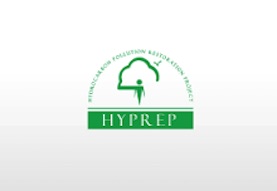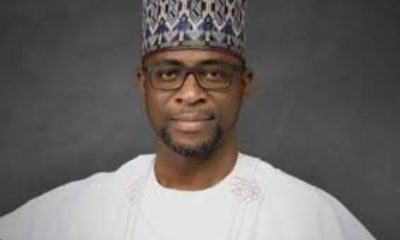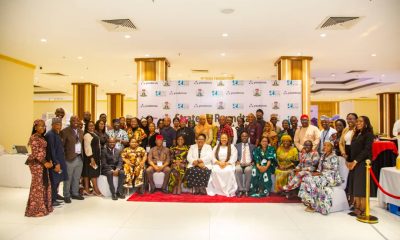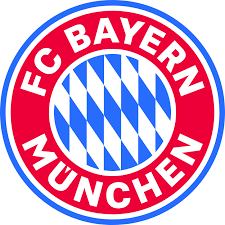Foreign News
Africa’s Lowest Vaccination Coverage at 2% Unacceptable, WHO tells G20
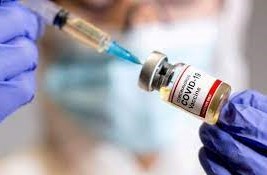
World Health Organisation (WHO), Director-General, Tedros Ghebreyesus, says Africa with the lowest vaccination coverage at two per cent is unacceptable, calling G20 Health Ministers to support regional vaccine manufacturing.
Ghebreyesus told the G20 health ministers meeting in Rome that almost 75 per cent of those doses have been administered in just 10 countries, while Africa had the lowest vaccination coverage at two per cent.
The director-general pointed out that: “Many countries continued to face steep increases in cases and deaths” – despite that more than five billion vaccines had been administered globally.
”According to him, WHO’s global targets are to support every country to vaccinate at least 10 per cent of its population by the end of September, at least 40 per cent by the end of the year, and 70 per cent by the middle of next year.
“We can still reach these targets, but only with the commitment and support of G20 countries,’’ he averred.
As the largest producers, consumers and donors of COVID-19 vaccines, he upheld that they hold the key to achieving vaccine equity and ending the pandemic.
“We can never allow a pandemic on this scale to happen again. And we can never allow an injustice like this to happen again,” the WHO chief added.
The WHO boss stated that global responses to the pandemic must be grounded in certain core principles.
He outlined; “they must have the engagement and ownership of all countries; be multisectoral, involving partners from across the One Health spectrum.
” They must also be linked to and aligned with WHO’s mandate; and ensure coherence with the International Health Regulations and other international instruments.
“And they must be accountable and transparent,” underlined the UN official.
Against this backdrop, the WHO chief spoke of four critical areas for action, beginning with better global governance.
“An international instrument on pandemic preparedness and response will strengthen the foundation for global cooperation, setting the rules of the game, and enhancing solidarity among nations,” he said.
The second point, he noted, was more and better financing for national and global preparedness and responses.
“Financing facilities must be built using existing financial institutions, rather than creating new ones that further fragment the global health architecture,” Ghebreyesus asserted.
He added that WHO had already taken steps toward better systems and tools across the One Health spectrum, his third action.
He noted, ” the need for a “strengthened, empowered and sustainably financed WHO to fully realise the Organization’s broad mandate.
“Redressing this imbalance is critical if WHO is to be the independent and authoritative institution the world needs it to be.’’
In addition, the WHO chief urged the G20 health ministers to swap near-term delivery schedules with COVAX by fulfilling dose-sharing pledges and sharing technology, know-how and intellectual property to support regional vaccine manufacturing.
He also requested that they support the development and adoption of a legally binding international agreement on pandemic preparedness and response.
“They should also strengthen WHO by backing initiatives that strengthen, not weaken, its mandate,” he urged. (NAN)
Foreign News
Australian Researchers Launch Open-source, Affordable DNA Measurement Device

Australian researchers have created an affordable, open-source device to measure DNA levels using parts made with a standard 3D printer.
The Do-It-Yourself Nucleic Acid Fluorometer (DIYNAFLUOR) offers an affordable alternative to expensive commercial DNA fluorometers, often out of reach for many researchers.
This is according to a statement released on Wednesday by Australia’s University of Queensland (UQ), which led the research.
Fluorometers, vital for DNA sequencing, which itself is essential for disease detection, therapeutic innovation, and species identification, can now be easily built at home.
Thanks to the simple, accessible device developed by UQ’s Australian Institute for Bioengineering and Nanotechnology (AIBN), the statement said.
The device can be built in under a day for around 60 Australian dollars (about 39 dollars) using off-the-shelf electronics and 3D-printed parts.
It’s with free instructions online and no need for advanced skills or specialised tools, said the designer of the device, Will Anderson, at the AIBN.
Once built, the device quantifies DNA by using a light beam to produce a fluorescent response from the dyed DNA present in the sample.
It would then report the DNA concentration to a connected computer, Anderson said.
“This is crucial information that can tell you whether you can proceed with more expensive tests and sequencing,” he added.
Laboratory tests confirmed the device matches the accuracy and sensitivity of costly commercial models, offering an affordable, open-source solution for researchers in resource-limited, remote, or educational settings, said the study.
Foreign News
Trump Imposes 25% Tariff on Indian Goods, Criticizes Ties with Russia

U.S. President Donald Trump said he is imposing a 25 per cent tariff on goods from India starting on Friday.
Writing on his Truth Social platform, Trump sharply criticises New Delhi for its military and energy ties with Russia.
He described India as a “friend” but accused the country of maintaining unfair trade practices that disadvantage U.
S. businesses.India has “strenuous and obnoxious” trade barriers that keep its markets closed to companies, he wrote, adding that its tariffs are “far too high.
”Trump also took aim at India’s relationship with Russia, saying: “They have always bought a vast majority of their military equipment from Russia, and are Russia’s largest buyer of ENERGY, along with China.
In addition to the new tariff, Trump said India would face a financial “penalty” for its purchases from Russia, though he did not provide further details.
Foreign News
Zelensky Announces New Draft Law on Anti-corruption Bodies after Protests

Ukrainian President Volodymyr Zelensky said he has approved the text of a draft law guaranteeing the freedom of two anti-corruption bodies in Ukraine – days after nationwide protests broke out over changes curbing their independence.
Kyiv’s Western partners had also expressed serious concerns over the legislation.
On Thursday, Zelensky seemed to backtrack, saying the new bill was intended to safeguard the independence of Ukraine’s National Anti-Corruption Bureau (Nabu) and Specialised Anti-Corruption Prosecutor’s Office (Sap), and to protect them from Russian influence.
He said the text of the bill was “balanced”, but did not provide any details.
The law passed earlier this week brought Nabu and Sap under the control of the prosecutor general, who is appointed by the president.
At the time Zelensky justified his decision to curtail the bodies’ powers by citing Russian influence. The day before, Ukraine’s security services had carried out searches and arrests targeting alleged Russian spies at the agency.
The passing of the legislation instantly sparked the largest protests since the start of Russia’s full-scale invasion in February 2022 in several cities across Ukraine, with many worrying the law would severely undermine the Nabu and Sap’s authority and effectiveness.
Thousands of people gathered in streets and squares across Ukraine, holding placards calling for the legislation to be vetoed.
Several commentators accused Zelensky of democratic backsliding. Their concerns were further exacerbated when Ukraine’s Western partners signalled their displeasure with the bill.
Ukraine has official EU candidate status and a spokesman for European Commission chief Ursula von der Leyen previously warned Kyiv that the rule of law and the fight against corruption were “core elements” of membership to the bloc.
On Thursday, the Commission said it “welcomed” the Ukrainian government’s decision to take action against the bill.
“We are working [with the Ukrainian government] to make sure that our concerns… are indeed taken into account,” the spokesman said.
Nabu and Sap were created in 2014-15 as one of the requirements set by the European Commission and International Monetary Fund to move towards a relaxation of visa restrictions between Ukraine and the EU.
Writing on Facebook, opposition MP Oleksiy Goncharenko noted Zelensky said that “the independence of anti-corruption institutions must be guaranteed.”
“First we take it away, and then we say that it must be guaranteed. So why was all this necessary?”
In his message on social media on Thursday, Zelensky did not acknowledge the protests or the backlash but said it was “important that we respect the position of all Ukrainians and are grateful to everyone who stands with Ukraine.”






